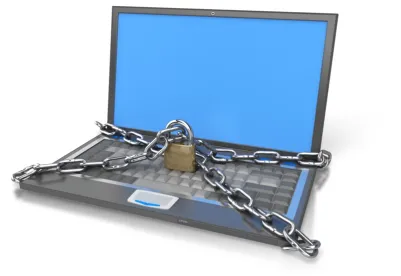On December 1, the US Copyright Office replaced its directory of designated agents for receipt of Digital Millennium Copyright Act (DMCA) notices of claimed infringement with a new electronic system.[1] As part of this process, the Copyright Office is making a number of changes to the rules for these designations, including: (1) requiring website operators and other "service providers"[2] who used the old system to re-designate their agents through the new system before the end of 2017; (2) requiring periodic renewal of agent designations; (3) modifying the types of agents that can be designated; and (4) changing the fee structure to a $6 flat fee per designation, amendment and renewal.
By way of background, the DMCA Safe Harbor protects compliant service providers from liability for copyright infringement committed by third-party users of their services.[3] These protections are relevant to a range of businesses, including websites that allow users to post comments or other material. The DMCA notice-and-takedown system allows copyright holders to send notices to service providers specifying the location of allegedly infringing third-party material on their websites and, so long as the service provider "expeditiously" removes or disables access to such content, protects the service provider from liability for infringement.[4] The DMCA requires each service provider wishing to avail itself of the Safe Harbor's protections to designate an agent to receive these infringement notices,[5] and to provide contact information for these designated agents on their websites as well as to the Copyright Office for inclusion in a searchable online directory. [6]
As part of the new rule changes, the Copyright Office is transitioning from a paper application system to an electronic system, and is requiring all service providers, even those that previously designated agents under the old system, to designate agents under the new system. The Copyright Office also revised other aspects of its rules regarding designation. Compliance with each of these changes is mandatory to maintain DMCA Safe Harbor protections.
Three Things to Know In Order to Preserve Your Safe Harbor Protections
There are three main changes that are critical to service providers.
1) Service providers that previously designated agents under the old system must re-file under the new system before the end of 2017. All service providers seeking Safe Harbor protection—even those that previously designated an agent through the old paper system—must register for an electronic account and file a new Designation of Agent To Receive Notification of Claimed Infringement through the new online system, available here.
Further, service providers who previously designated agents through the old system must re-designate prior to December 31, 2017. Failure to do so will result in a lapse of Safe Harbor protection and may result in a loss of liability protection.
2) Designations now expire, and must be renewed every three years. Previously, designations were effective until updated or removed by the service provider. Under this new system, however, designations expire after three years unless renewed or otherwise updated during that period of time. Each time a designation is filed, amended or renewed, it restarts the three-year period.
If a service provider's designation expires or is not updated when the agent's information changes, the organization loses the benefit of the Safe Harbor. While the Copyright Office indicates that the new system will send automated reminders, it falls on the website owner to ensure that designations remain accurate—and that the service provider remains protected.
3) Service providers will have greater flexibility in designating acceptable agents. The new rules include options regarding who, or what, can be designated as an agent. With these new additions, service providers can now designate any of the following as an agent for receipt of DMCA notices:
-
a natural person;
-
a specific position or title within an organization (e.g., Copyright Manager);
-
an entire department within an organization (e.g., Compliance Department); or
-
a third-party entity (e.g., a law firm, corporate affiliate or vendor).
Note the liability still falls on the service provider, not the agent, to ensure an expeditious response to any notices of claimed infringement.
[1] Designation of Agent To Receive Notification of Claimed Infringement, 81 Fed. Reg. 75,695 (final rule Nov. 1, 2016) (to be codified at 37 C.F.R. pt. 201), available here.
[2] For purposes of the DMCA, a "service provider" is defined as a provider of online services or network access, or the operator of facilities therefor, including an entity offering the transmission, routing, or providing of connections for digital online communications, between or among points specified by a user, of material of the user's choosing, without modification to the content of the material as sent or received. 17 U.S.C. § 512(k)(1).
[3] 17 U.S.C. § 512(c).
[4] 17 U.S.C. § 512(c)(1)(C).
[5] 17 U.S.C. § 512(c)(2).
[6] Id.






 />i
/>i

